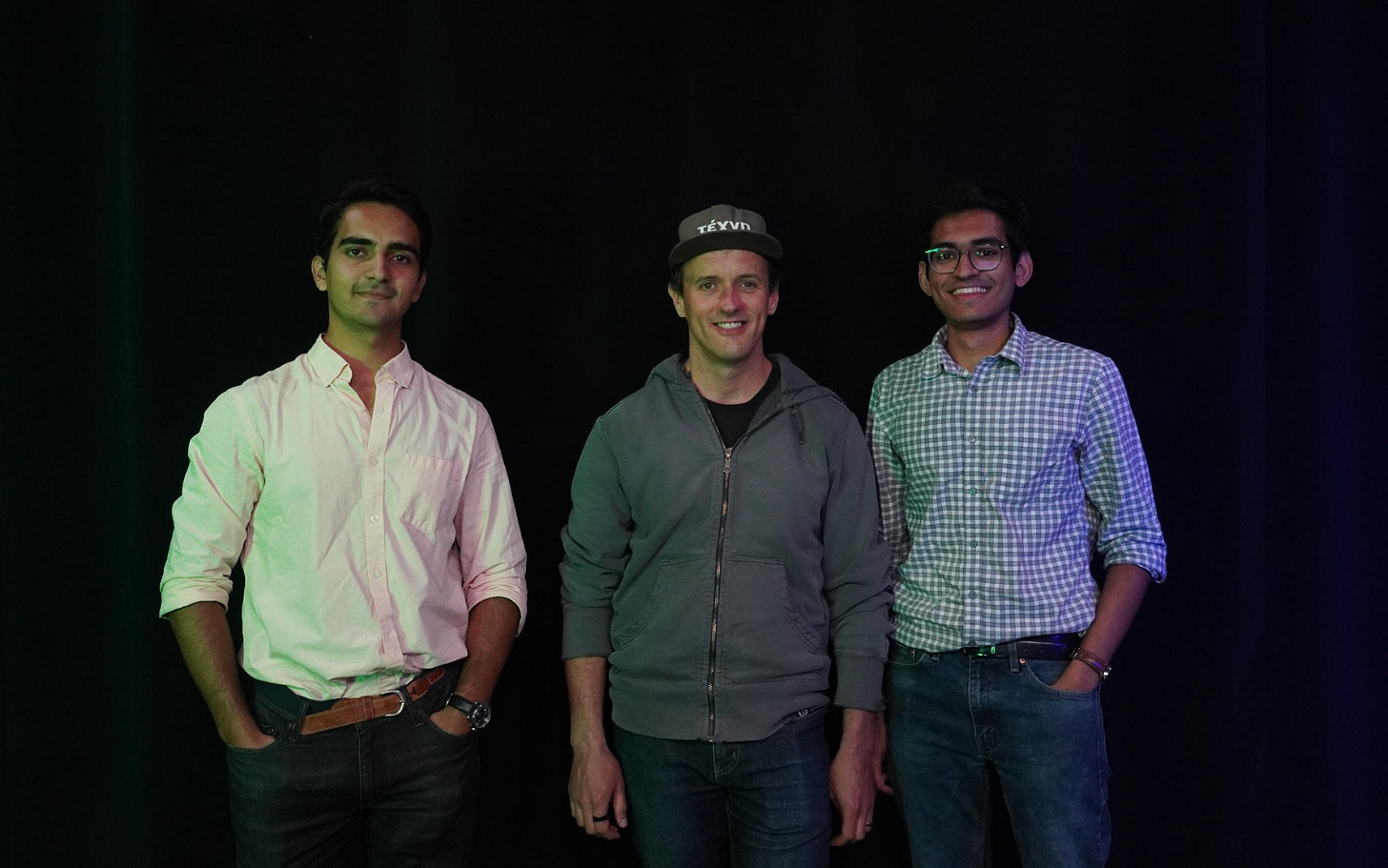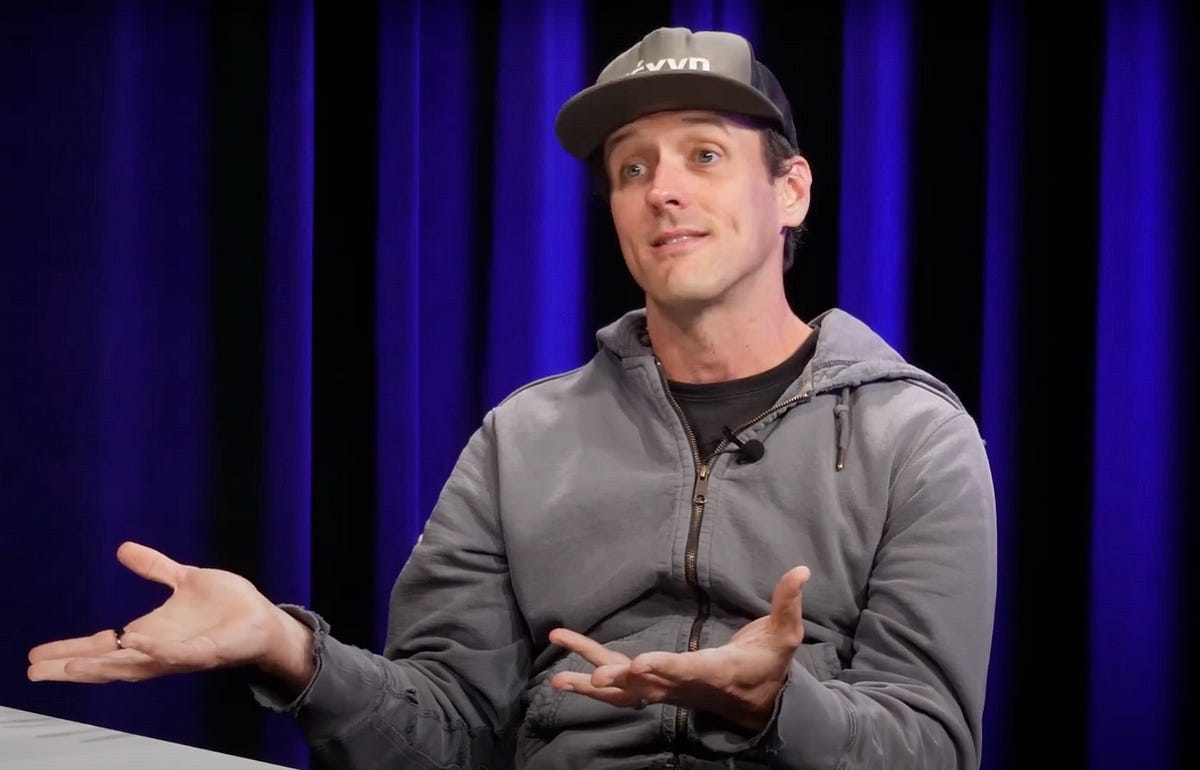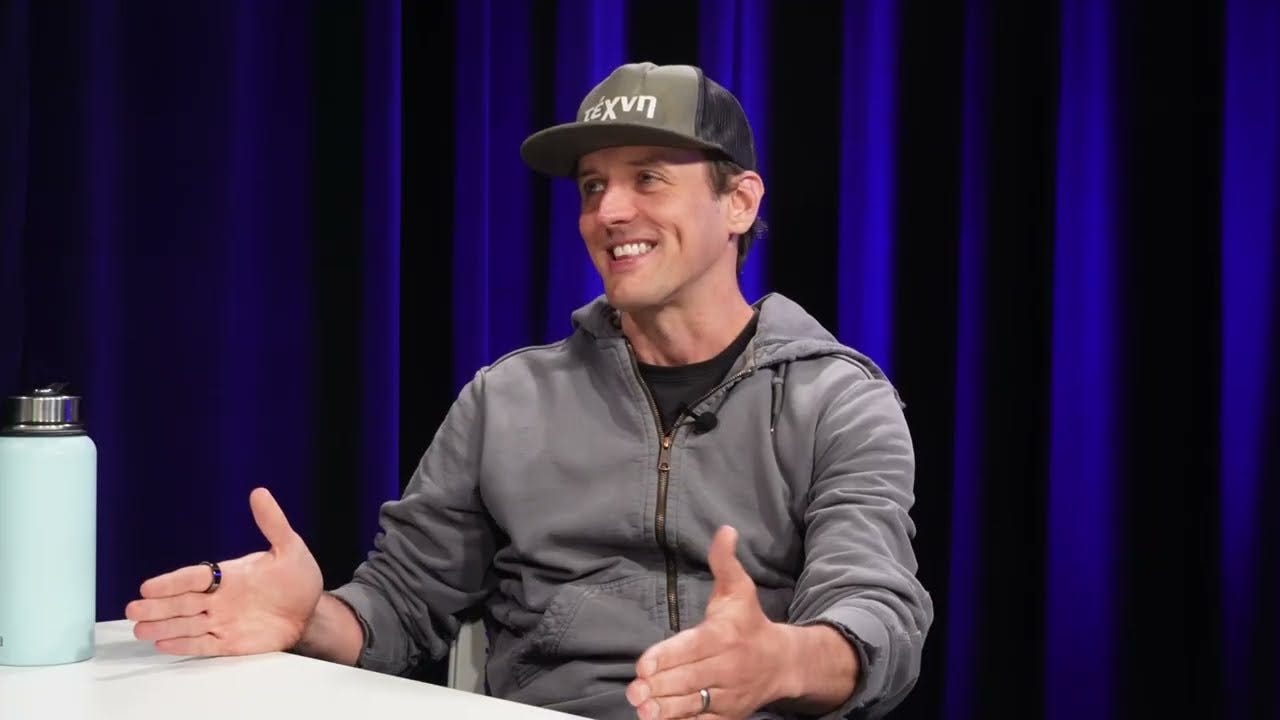How a Back Row Kid Became a Professor (And Changed Everything)
On Academic Rebellion, Free Education, Teaching Classes with Over 1,000 students, Getting Tenure Wrong, Grief, Choosing Principles Over Profit, and Why He Said No to Mark Zuckerberg
Geoffrey Challen is a Computer Science Professor at the University of Illinois.
With some professors, there's a before and after in your reality as a student—you see things differently. For me, that was Challen's CS 125 (now called CS 124).
After I picked up my phone and called the head of physics, he said I couldn't take Physics 211 because my transcript didn't show calculus. Even though I knew it and had taught myself, he didn't let me take it and hung up on me. I found myself with an open spot, and it was this class I'd heard so much about—CS 125 with Geoffrey Challen. I'd heard it was tough, but he was unique and idiosyncratic, and that was interesting, so I took the bait.
And it changed me. Not necessarily because of anything I learned, although it helped my understanding of how technology worked, but because of how he saw the world. He spoke openly, questioned norms, and never just went through the motions.
Unlike typical professors—front-row nerds and teacher's pets—Challen is a hacker, a rebel. He fell asleep in classes, sat in the back, resisted authority, and now builds his courses around that spirit.
His iconic cap reads τέχνῃ—the ancient Greek root of the word technology—which means "the art and skill of making." For Challen, teaching technology isn't just about tools or code; it's about guiding students to become creators. After all, perhaps we shouldn't be called Homo sapiens (the wise ones), but Homo technologicus—those who craft, build, and innovate through τέχνῃ.
Challen might not be considered the wisest by some of his colleagues, but the future—reflected in today’s students—seems to know better. They don’t call him “professor” as much as they call him “dope” or “based.”
That's what you get with Challen—not just a professor, but someone who shows you a different way to see the world, to resist conformity, to build things that you want.
Someone who proves that being yourself, even when it costs you, is worth it.
Key Highlights:
Rethinking Scale in CS Education
Challen argues that automation, data analytics and a purpose-built testing center let one instructor meaningfully serve a thousand students—often better than dozens of loosely synchronized small sections.
Open-Access & Admission Equity Crusade
He’s outspoken about the moral (and practical) need for Illinois to widen the CS admission funnel, create BA-style pathways, and stop gate-keeping talent with 6 % admit rates. “Let’s make it harder on ourselves and educate more people.”
Pandemic as Catalyst, Not Detour
The sudden 2020 shift forced him to rewrite CS 124’s infrastructure in weeks: autograder revamp, home-grown help site, analytics-driven outreach. He views that sprint as proof that “lecture is optional, learning is not,” and refuses to slide back to passive, pre-COVID norms.
Harvard’s dining-hall design is the antithesis of “efficiency”
Challen explained that each residential “House” keeps its own small dining hall—even though one mega-cafeteria would be cheaper—because community beats economies of scale: you see roughly the same 200 faces at every meal, which seeds friendships and intellectual cross-pollination.
Dorms as an intentional counter-market
At Harvard, students choose to stay on campus all four years because the university out-competes private landlords on food quality, maintenance and social life; Challen argues Illinois should copy that model instead of letting high-rent developers “parasite on students’ wallets.”
Universities shouldn’t moonlight as local-economy boosters
He said a land-grant school’s mission is education, not propping up nearby real-estate or bar districts—“If building our own quality, low-cost housing kills Green Street’s rental margins, that’s a feature, not a bug.”
Memorable Quotes:
“If a thousand students want to take any class, breaking it into twenty-student sections isn’t scaling — it’s duplication.”
“The problem with ‘small-class magic’ is 50 clones of the same course and zero consistency for the next one.”
“No one has really leaned on me to shove my materials into Canvas—and if they do, then, you know, it’ll be time to find another job.”
“I’ll stop teaching CS 124 when I’m bored — and I’m not there yet.”
“Somehow we’ve let a whole rental economy grow parasitically around campus, and people say, ‘But local landlords will be mad.’ That’s not the university’s core function—it’s to educate students and give them a good environment to learn in.”
“We discovered some things during the pandemic; it would be a waste to pretend none of it happened.”
A call to turn crisis learnings into permanent progress instead of rubber-banding back to old habits.
“I remember asking Mark [Zuckerberg], ‘Are you going to sell the company?’—I was nervous because Matt Welsh [Challen’s PhD advisor] had warned me all these start-ups flip. Mark just said, ‘Well, I have a number in my head, and nobody has ever met that number.’
Up Next: Can You Guess?
⚖️🧠🌍💡📚🎙️🌐 A philosopher by training and he’s behind some of the most provocative ideas in energy policy



